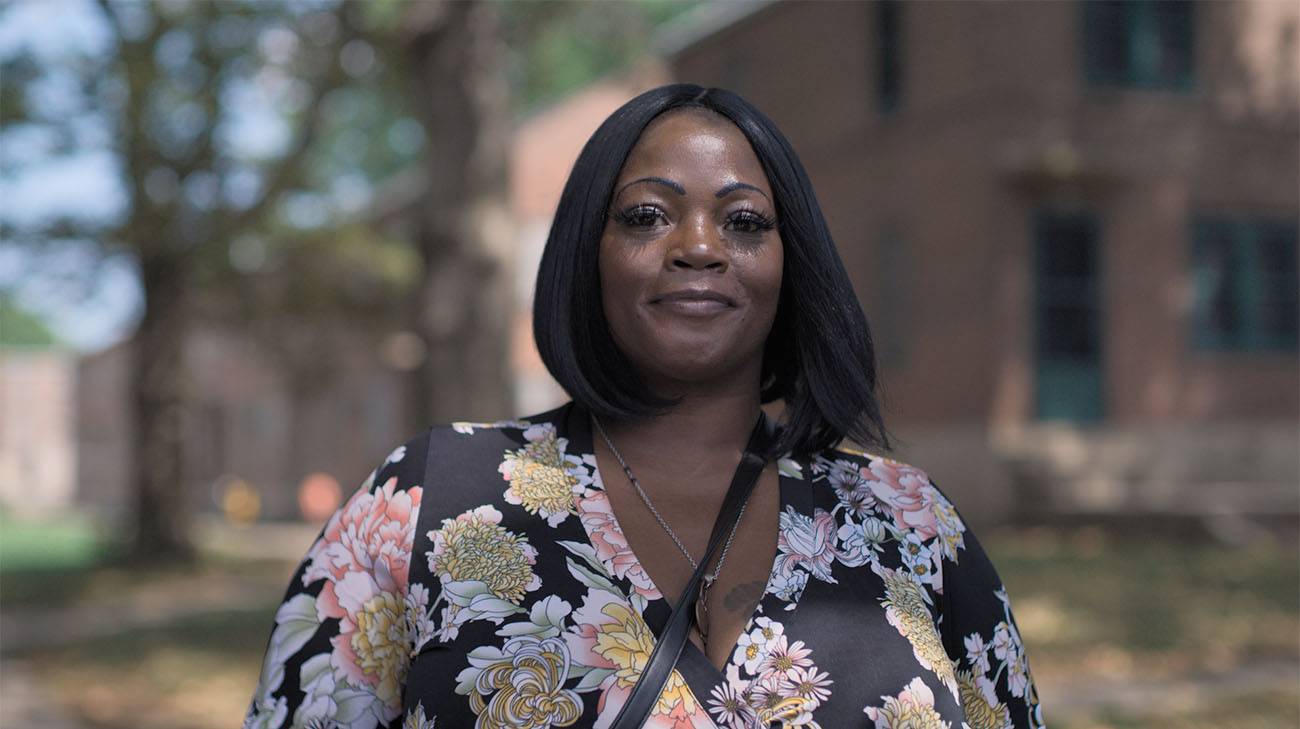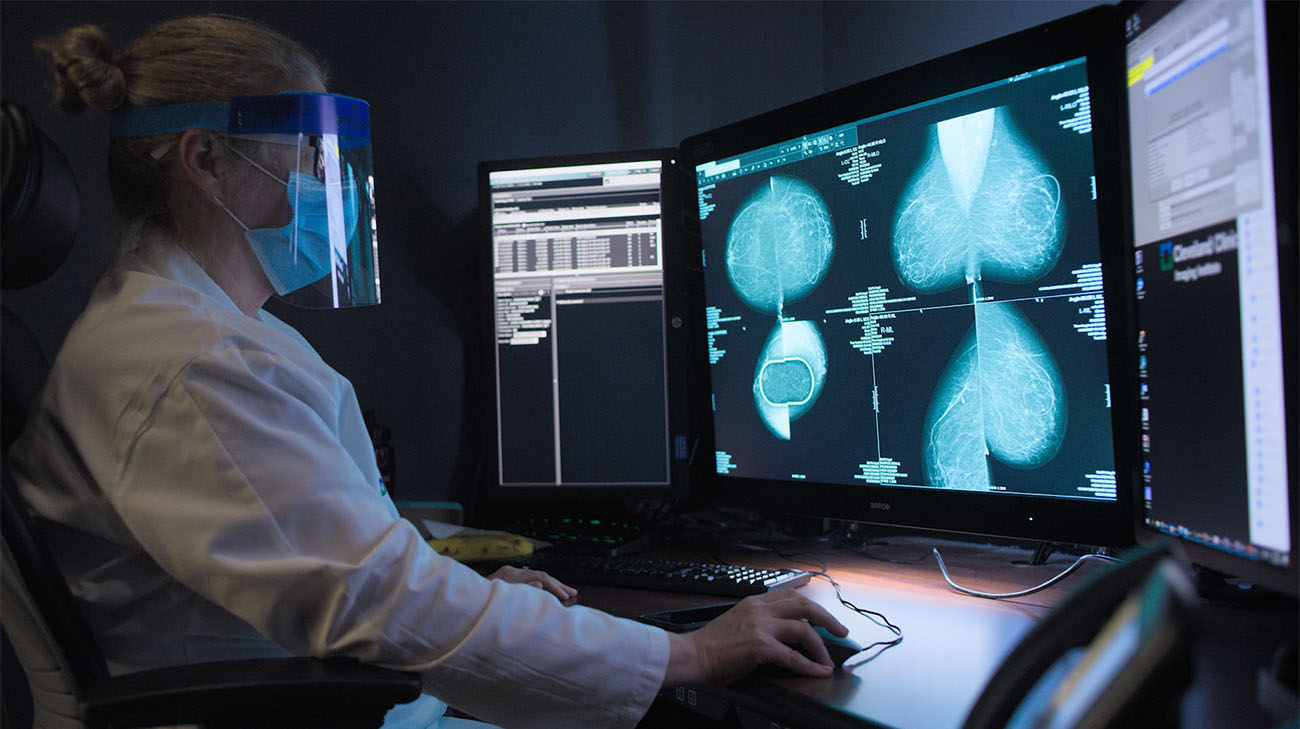
During her mother’s final moments, 40-year-old Terri Overton informed her she would soon be getting her first mammogram. “Girl, go!” Debra Mae Overton implored to her daughter. A few days after Debra passed away, Terri did just that, at Cleveland Clinic’s Langston Hughes Health & Education Center, which focuses on health education, prevention and wellness programs and primary care services to help improve community health.
“I've always wanted to get a mammogram due to the fact one of my aunts, and one of my cousins died from breast cancer, and my mom also battled breast cancer,” says Terri, who lives in a community adjacent to Cleveland Clinic’s main campus. Before seeking care at Cleveland Clinic, Terri was told she didn’t need a mammogram yet. “I asked when I was 30, and I asked when I was 35. And they said, ‘No, you have to wait until you’re 40.’ Which I didn't understand, since it runs in my family.”
While screening mammograms are not generally recommended for women under 40 years old, those with a family history of breast cancer – like Terri -- should typically be screened earlier, says Linda Bradley, MD, gynecologic surgeon and professor of obstetrics and gynecology and reproductive Biology at Cleveland Clinic.
“Women of color often feel marginalized that they aren't listened to and that their concerns are dismissed by the medical community,” says Dr. Bradley, who also grew up near Cleveland Clinic and became its first African American female staff physician in 1991. “Our campus sits in the middle of some under-resourced areas, and Cleveland Clinic needs to be an oasis for those communities.”
Cleveland Clinic is committed to improving access to care for its medically under-served neighbors, such as offering free screenings and other services, to help make the communities it serves healthier. Doing so helps address some of the gaps in healthcare access in quality. According to the National Academy of Medicine, these social determinants account for 80% of a person’s overall health.
“Caring for the community is a cornerstone of our foundation,” says Tomislav Mihaljevic, MD, CEO, President and Morton L. Mandel CEO Chair of Cleveland Clinic. “We create a true collaboration by understanding what the community believes they need and then creating programs to address those needs.”
The ability to get to a facility can be a barrier to health care access. Terri’s visit was scheduled by a community navigator, who also arranged her transportation and accompanied her on her visit. Grateful to be getting a mammogram, at last, Terri was nonetheless nervous about what the results might reveal.
“This is a blessing,” she states. “But I feel that I should've had the right to get a mammogram test done at an earlier age, because if we know about (cancer) early, we can do something about it.”
Terri’s initial results found the presence of some cysts, prompting further testing. The cysts were found to be benign, a huge relief for Terri, who intends to continue receiving regular mammograms and doing self-examinations. Given her family history of breast cancer, she’s seeing a genetic counselor.

Doctors found cysts during Terri's mammogram. After further testing, they were found to be benign. (Courtesy: CNN's brand studio)
“My advice to young women is to continuously ask their physician to see if there's any way they can get screened,” adds Terri, who is studying to become a medical administrator. “If they give it, you have to take the initiative to get it.”
Dr. Bradley is encouraged that community-focused services are making a difference for area residents who may be skeptical or wary of medical care. “One of our jobs as physicians is to be teachers, because prevention is preferable to a cure. I love it when I can take care of someone, educate them, be a role model, be an advocate, and to make the health care system work for them.”
Adds Dr. Mihaljevic, “We know the best chance to defeat a cancer is early detection, and that is the advantage of having a large health care system in the immediate neighborhood. We can provide an entire scope of treatment, from early detection to cure.”
Terri’s story is featured in “Commitment to Our Community,” an episode of a five-part docuseries celebrating Cleveland Clinic’s Centennial produced in collaboration with CNN’s brand studio.
Related Institutes: Cleveland Clinic Cancer Center, Ob/Gyn & Women's Health Institute, Community Care

